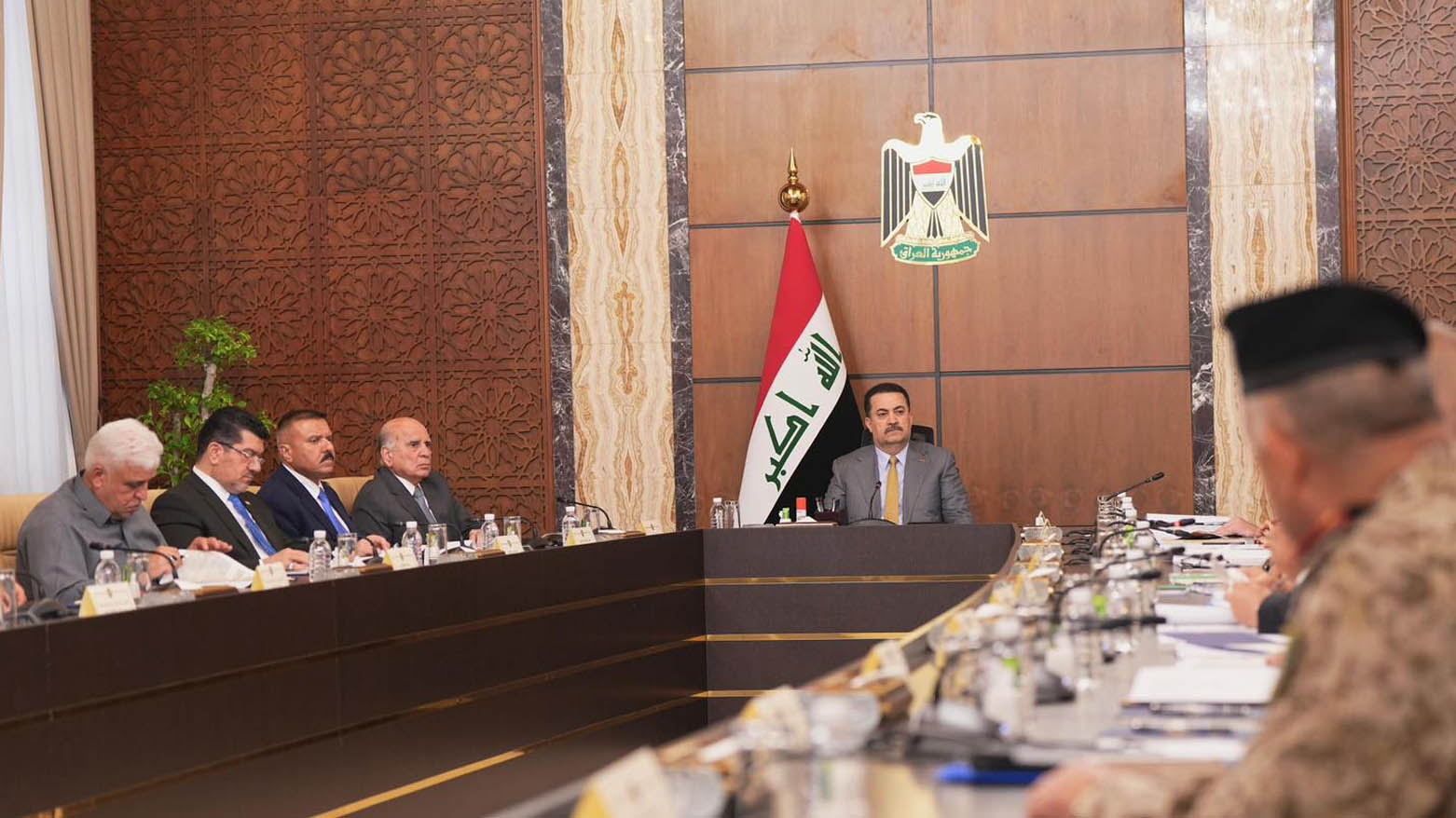Iraq’s National Security Council Reviews Security Situation and IDP Camp Conditions
Iraq continues to face a protracted displacement crisis more than six years after the territorial defeat of ISIS. Over one million people remain internally displaced, with most living in private accommodation or informal settlements.

ERBIL (Kurdistan24) – The Ministerial Council for National Security, chaired by Prime Minister and Commander-in-Chief of the Armed Forces Mohammed Shia al-Sudani, convened on Wednesday to review Iraq’s security situation and evaluate measures related to internally displaced persons (IDPs) and critical infrastructure.
Sabah al-Numan, spokesperson for the Commander-in-Chief, said in a statement released by the Iraqi News Agency (INA) that the meeting covered “the overall security situation in the country, key agenda items, and the adoption of necessary decisions and recommendations.”
The Council also addressed security measures to protect the strategic port of Faw, highlighting its vital economic role and the need to safeguard Iraqi territorial waters. In addition, officials reviewed the international security and crime prevention agreement between Iraq and Spain, approving its implementation in line with established procedures.
A central focus of the meeting was the government committee tasked with assessing IDP camps. Discussions centered on strengthening security, services, humanitarian support, and social programs, while also evaluating past reintegration and rehabilitation initiatives.
The Situation of IDPs in Iraq
Iraq continues to face a protracted displacement crisis more than six years after the territorial defeat of ISIS. Over one million people remain internally displaced, with most living in private accommodation or informal settlements. However, approximately 100,000 IDPs still reside in 21 camps, primarily located in the Kurdistan Region.
These populations face persistent challenges with safety, livelihoods, housing, and access to essential services, preventing many from returning home or integrating into new communities.
According to UN figures, more than 511,000 IDPs and refugees currently live in Erbil and Duhok provinces, with the majority residing outside formal camps. As of December 2024, the UNHCR reported that over 36,000 displaced individuals—mostly from the Yezidi community—had left camps in the Kurdistan Region.
Mohamed al-Hassan, the Special Representative of the UN Secretary-General for Iraq and head of the United Nations Assistance Mission for Iraq (UNAMI), urged renewed action to resolve the issue. Speaking at a press conference on July 30, he said, “I hope the situation of the Internally Displaced Persons (IDPs) in the camps will not continue as it is, and we will do our best to return them to their homeland, as this is their wish and hope.”
He added that UNAMI will continue to coordinate with both the Kurdistan Regional Government (KRG) and the Iraqi federal government to support durable solutions for displaced families.